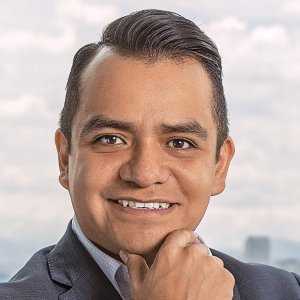
Regulatory Compliance & Risk Management
 By Paloma Duran | Journalist and Industry Analyst -
Thu, 07/15/2021 - 14:48
By Paloma Duran | Journalist and Industry Analyst -
Thu, 07/15/2021 - 14:48
You can watch the video of this panel here.
During the pandemic, it became clearer that the parameters that determine regulations and standards within the oil and gas industry can change. These modifications have added more risk factors to an industry that had already been hit by a financial recession and a slump in oil prices. The best ways for companies to stay productive and prevent risks were the main topics discussed during the third panel of the second day of the Mexico Oil and Gas Summit 2021, entitled “Regulatory Compliance & Risk Management.”
The panel was moderated by Benjamin Torres-Barrón, Partner at Baker McKenzie Mexico, who explained that the hydrocarbon industry has been subject to very rigid standards in recent years, and these have only been increasing. Consequently, mining companies must find the best way to comply with these regulations and address their main risks. "It is not only upstream oil operations that should prioritize these issues, but the entire value chain of the industry."
The whole industry was affected by the COVID-19 pandemic. However, these new changes have allowed safer operations and provided greater protection to personnel, said José Bosch, CEO of Oleum Energy. In addition, Bosch explained that it has not been easy to understand Mexico's regulation, especially in environmental and basic hydrocarbons matters. However, authorities have implemented new mechanisms and frameworks to adapt to the current challenges. “Authorities have been receptive and have been understanding about delays, giving us additional time to comply with new regulations,” Bosch said.
In an interview with MBN, Eckhard Hinrichsen, Country Chair of DNV Mexico, said the pandemic has created new trends within the industry, such as remote inspections techniques that now have been fully accepted by clients and provided continuity to projects that otherwise would have been severely affected. “We expect that this will continue even after the pandemic is over. Risk analysis many times requires multidisciplinary sessions and we are doing those remotely now, using special cameras. We have come a long way in how we go about these projects since the beginning of the pandemic.”
Regarding ASEA's initiative to include not only operators in the regulations, but also contractors and subcontractors, Graciela Alvarez, Chief Executive Officer of NRGI Broker, said it is critical to the industry as contractors often do the riskiest jobs. “The oil and gas sector is highly specialized. Their processes require a lot of risky work that contractors do. If we are not careful, these can affect people and the environment.”
The regulated usually have the responsibility of everyone who works with them. However, the implementation of a broader regulation is a better guarantee for all. “Even though operators have insurance that covers companies they subcontract, adequate risk management calls for even wider coverage to protect income. You never know when an accident can occur because of fragile equipment,” said Alvarez.
Rodolfo Alfonso Esquivel, Director of Grupo Roales, agreed that having a policy proportional to the work that contractors will provide is the best way to mitigate risks. “As contractors, we have to standardize practices to raise the level of operation in this highly specialized sector. Also, we need to integrate more technology and have more insurance advice.”
However, panelists also agreed that the new parameters have created challenges within the industry. “The process of modernizing the regulatory framework was necessary, but the authorization has caused problems and delays. It is important to be able to unburden that process,” said Hinrichsen. Another challenge has been that the authorities have asked to show these insurance policies, which is not the problem but the time lapse they provide, explained Alvarez. Bosch added that the policies that companies need are not on the market, making it difficult to be an operator in Mexico.
In order to show the importance of risk management and compliance, the famous Eye of Fire was discussed, an accident that has given the industry a bad image. According to Hinrichsen, the accident caused no injuries and was contained within five hours. “Its impact appears to be minimal. However, it is necessary to analyze its environmental effects, as well as the systems present to see if they can be improved.”
Hinrichsen said that an important factor to always consider in these operations is that fields and resources change, so a structure that was implemented years ago will not be effective today. "Updating and maintaining the structures is key to avoiding these types of accidents," Hinrichsen said. Meanwhile, Alvarez emphasized that PEMEX should be careful with maintenance, processes and aging infrastructure so that it can protect the environment and prevent incidents.
Esquivel said that there are new technologies that can improve performance and safety in operations, in addition to mitigating the impact and frequency of these accidents. "New technologies will allow us not to stay with an old solution, which no longer adapts to the current opportunities and challenges of the industry."
Francisco Javier Hoces, Director of International Consultancy of INERCO, added that the integration of new technology for best practices based on staff training is the new trend. “Technology gives us new dynamics for risk assessment and remote supervision.”
Hoces concluded the panel by saying that there is a great challenge for the oil and gas industry in Mexico. He explained that the country already has regulations and laws that give obligations to companies to better protect people and the environment. However, these have only remained on paper. The challenge remains to implement it in daily activities. Hoces highlighted that the pandemic boosted technological development, thus promoting best practices within the industry. "These practices are coming to Mexico and we have the opportunity to improve our operations and avoid future problems."
















